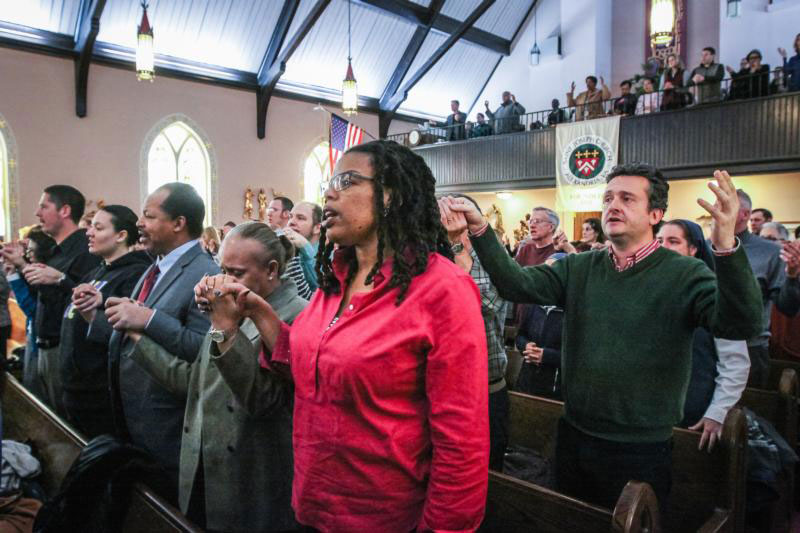
“The state should not force people to go against their integrated view of humanity,” said the Director of the Office for Civil Rights at HHS, Roger Severino, at a Jan. 18 press conference.
This new Conscience and Religious Freedom Division, which falls under the HHS Office for Civil Rights, will focus on the enforcement of existing laws on rights of conscience and religious freedom. It will also provide an outlet to field Americans’ complaints of any discrimination they have experienced in the field of healthcare.
For examples, doctors or nurses who have been forced to participate in an abortion or an assisted suicide that violates their moral convictions will be able to file a complaint directly on the HHS website.
The number of these types of conscience complaints to HHS has increased dramatically since President Donald Trump’s election. Ten complaints were filed with HHS during the eight years of the Obama administration, whereas there have been 34 since November 2016.
Severino told EWTN News Nightly that he attributes this surge in complaints to “pent up demand” and that this new division has been established “to assess complaints, see which ones are meritorious, and to vindicate the interests of justice as the law requires.”
Also speaking at today’s announcement was Montse Alvarado, the Executive Director of the Becket Fund for Religious Liberty, who explained to CNA what this new division will mean for Catholic healthcare professionals across the country.
“For the past 10 years we have had attacks on conscience that manifested themselves particularly for the Catholic community in the area of healthcare and healthcare providers with individuals and institutions,” she said.
“Because Catholics play such a large role, they finally will have a place to bring their grievances to try to solve things and bring common sense solutions that are so important without having to resort to litigation. And if they do need to litigate them, they will have a partner in this division.”
Several other government officials and religious figures spoke at the press conference announcing the new division.
House Majority Leader Kevin McCarthy noted a concern from his state of California, where a new law forces pregnancy centers to provide information about local abortion providers. This Supreme Court will hear this case, National Institute of Family and Life Advocates v. Becerra, this year.
Earlier this week, President Trump recognized National Religious Freedom Day, saying in a Jan. 16 proclamation, “No American – whether a nun, nurse, baker, or business owner – should be forced to choose between the tenets of faith or adherence to the law.”
When asked by EWTN News Nightly about the likelihood of the new department surviving in future administrations, Severino responded, “It would be very difficult to undo the division. This is a foundational civil right. Everybody should be in favor of civil rights for all and that includes our first civil right, which is our right to free expression of religion and conscience. This is enforced through our laws that have been passed by bipartisan congresses and presidents in both parties that have been with us for decades. Those are not going to go away and we have to enforce those laws fully.”
The Conscience and Religious Freedom Division will enforce existing protection statutes over which the Office of Civil Rights already has authority. This includes the Weldon Amendment, which stipulates that states receiving federal funds cannot discriminate against health plans that do not cover or pay for abortions. The division will also enforce Section 1553 of the Affordable Care Act on assisted suicide.
“Laws protecting religious freedom and conscience rights are just empty words on paper if they aren’t enforced. No one should be forced to choose between helping sick people and living by one’s deepest moral or religious convictions,” said Severino in a press release.
For Americans who are concerned that they have experienced a violation of their conscience rights, Severino told CNA, “We are going to make it as user-friendly as possible, so that people know that the doors are open and that every complaint will be treated appropriately and given the attention it deserves and then those that require enforcement will be handled appropriately.”
“We encourage anyone who believes that their conscience rights have been violated in a healthcare context to reach out to us. They are free to file a complaint. To get more information from our website, just google ‘Office for Civil Rights HHS’ and just add the word ‘conscience.’”
By Courtney Grogan / CNA/EWTN News
Photo: D.C. skyline by Orhan Cam/Shutterstock



